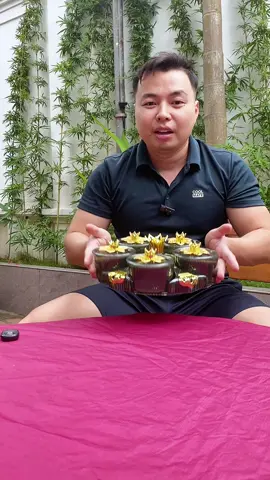Daily Mirror
Region: GB
Tuesday 18 November 2025 20:57:23 GMT
689303
39262
678
3283
Music
Download
Comments
SiobhanEire :
Jamal Khashoggi, the Saudi journalist murdered in 2018, had ties to investigations into Saudi Arabia's alleged role in the 9/11 attacks, which some attorneys for victims' families believe contributed to his killing as a means of silencing potential whistleblowing.In October 2017, Khashoggi—then in self-imposed exile in the U.S.—met with Catherine Hunt, a former FBI agent and investigator for 9/11 families suing the Saudi government. Khashoggi's background as a former Saudi intelligence operative under Prince Turki al-Faisal gave him deep knowledge of Osama bin Laden, Al-Qaeda networks, and potential Saudi support for the hijackers. The meeting was preliminary and yielded no specific disclosures, but attorneys later argued it exposed him to retaliation. Immediately after, Khashoggi texted senior Saudi officials, including then-Ambassador to the U.S. Khalid bin Salman (brother of Crown Prince Mohammed bin Salman), reportedly alerting them to the contact.James Kreindler, a lead attorney for the 9/11 plaintiffs, has publicly stated that Khashoggi's murder was motivated by these interactions rather than his general criticism of the Saudi regime: "Khashoggi was killed not because he was a dissident, but because of his contact with us." Kreindler speculated that Khashoggi's post-meeting communication may have included a desperate plea, such as warning that harm to his detained son in Saudi Arabia would force him to reveal more. In federal court filings, the families cited the episode as evidence of Saudi witness intimidation, though they stopped short of directly linking it to his death at the Istanbul consulate a year later. Khashoggi had also agreed to further meetings with the lawyers before his killing.U.S. intelligence intercepts confirmed the texts to Khalid bin Salman, who denied suggesting Khashoggi visit the consulate and claimed their last contact was that 2017 text. While Khashoggi did not publicly whistleblow on 9/11 specifics, his insider access and outreach from the families positioned him as a high-value source, amplifying suspicions that his elimination was preemptive. This narrative features prominently in the 2020 documentary Kingdom of Silence,
2025-11-19 01:05:23
3
wtf😅😅😅 :
why he tryin not to laugh
2025-11-18 23:20:27
7150
Aljouhara :
Abc news 👎🏼👎🏼👎🏼 very bias
2025-11-19 01:03:55
119
tomioka:) :
“My mama is kinda homeless”
2025-11-18 23:57:49
2080
Frank Byrne :
The American press would never question Nethanyu like that.
2025-11-18 21:58:40
1608
🇸🇦 :
American news talks about 9/11 every single year like a wedding anniversary
2025-11-19 03:08:11
288
🎀⁺˳✧༚ A✧₊⁎🎀 :
What does 911 have to do with ksa….. LOL
2025-11-18 23:37:10
2036
Moose :
How he killed them
2025-11-18 21:08:48
659
Yaz :
No way they’re still dragging 9/11 💔
2025-11-19 00:05:09
1650
Batman :
Why the hell are they asking questions like that?do they not have any respect
2025-11-18 23:32:55
456
Death_bloom0 :
Dragging 9/11 in 2025 is crazy😭😭😭
2025-11-19 00:59:02
644
Iyad Tabouni :
Trump sees him as an ATM. 😂😂😂
2025-11-19 02:17:15
110
javed :
2025-11-19 02:55:12
3
Vacna :
: Why don't these journalists ask Netanyahu what he is doing in Palestine???? 🤔
2025-11-19 01:08:40
48
Abdul.F15 :
They hate us cause they ain’t us 😏
2025-11-19 01:46:31
364
Clarelilyp :
Politics seems to have completely forgotten about humanity
2025-11-18 22:01:02
1646
snowy❄️ :
This is why I respect trump so much
2025-11-19 00:33:26
37
Hokage Banana :
No way she brought up 9/11 💀
2025-11-19 00:30:29
724
️Elias :
Please king I need this
2025-11-19 03:05:52
17
W.L🇸🇦 :
The question was asked after 26 years, or 4 periods of rule🤯
2025-11-19 01:44:32
5
eyebrowladyyy🇵🇷 :
After the way they treated Zelensky, NOW he’s worried about embarrassing a White House GUEST???
2025-11-18 22:44:44
354
kerriolson335 :
Great job Trump!
2025-11-18 21:32:24
119
🂶🂶🂶 :
every clip of him answering press questions is just insults lately… very presidential
2025-11-18 22:46:20
3559
WhiteZilla 🦖🎌 :
TIKTOK DELETED MY COMMENT WHEN I MENTIONED THAT SPECIFIC GROUP OF PEOPLE WHO ORCHESTRATED THE WHOLE THING ABOUT HIM IT STARTS WITH Z
2025-11-19 01:24:55
13
To see more videos from user @dailymirror, please go to the Tikwm
homepage.





